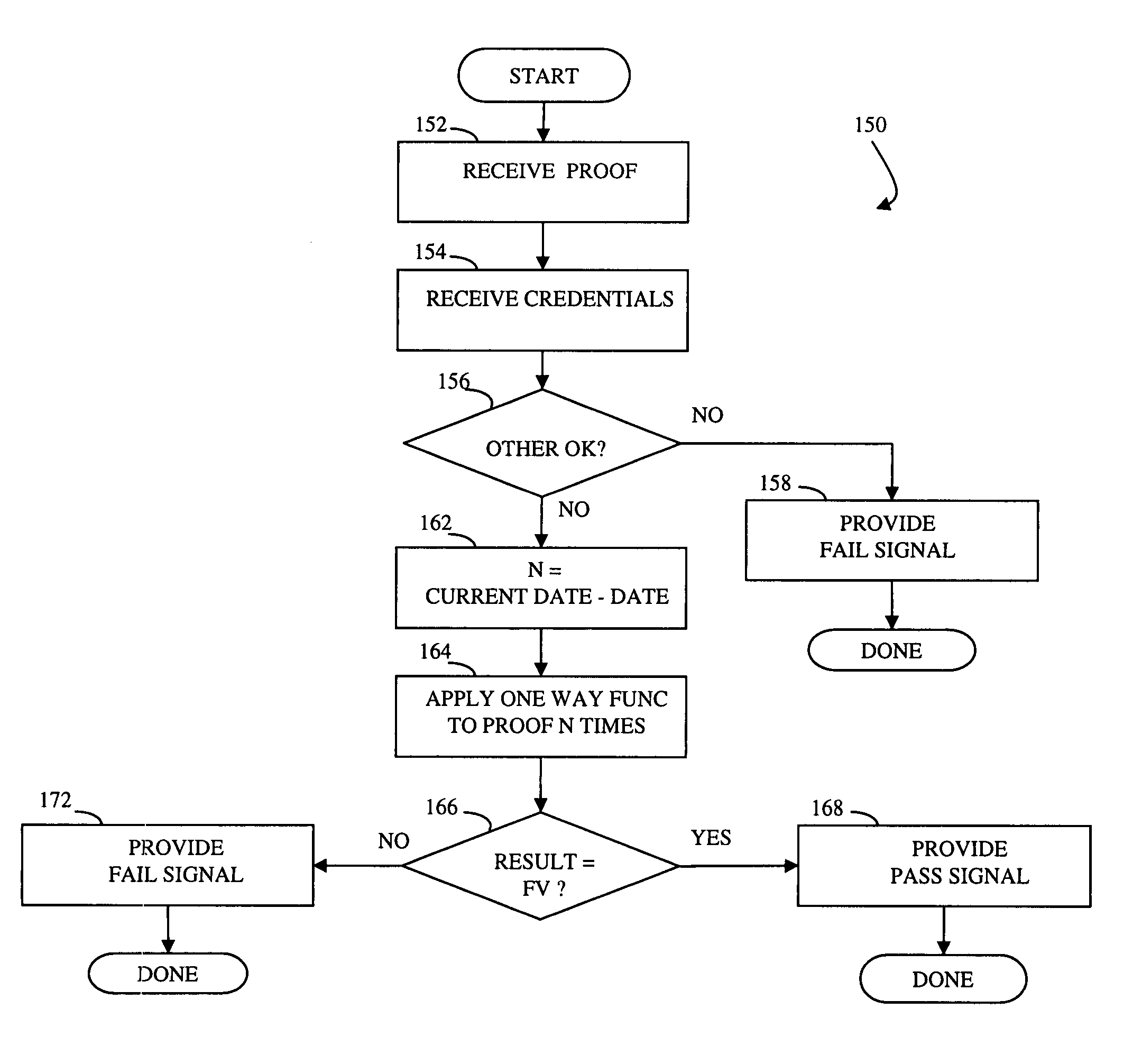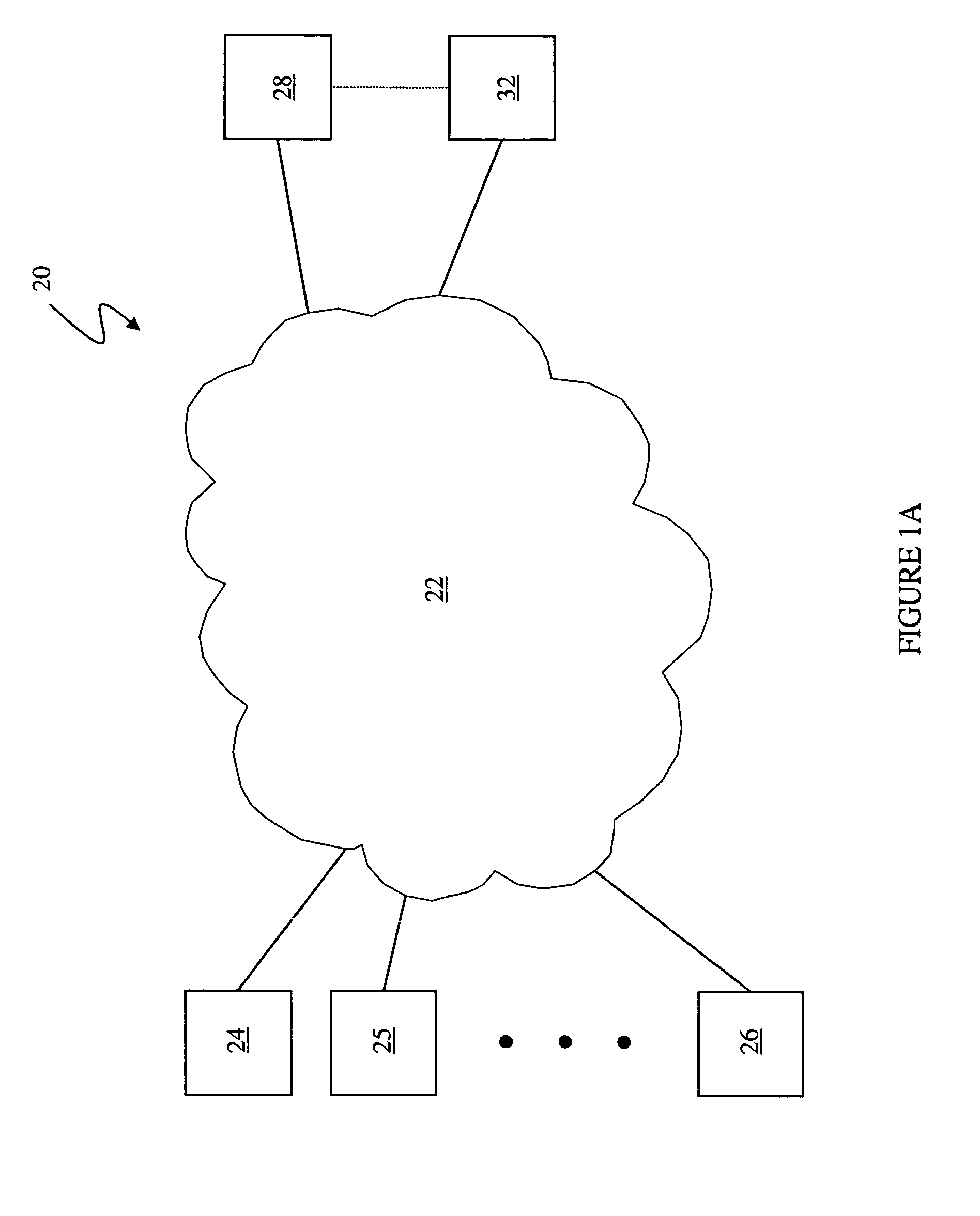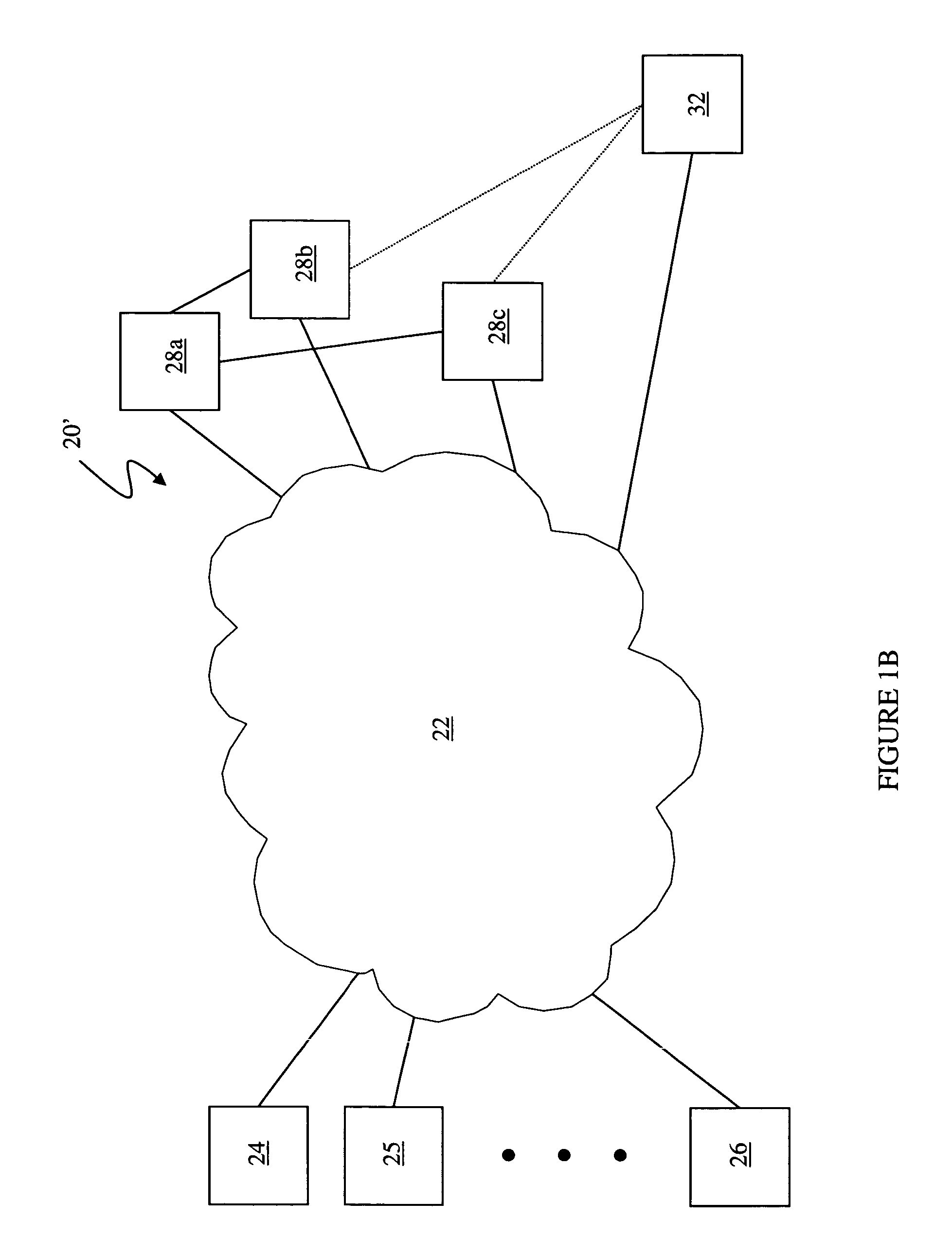Controlling access using additional data
a technology of access control and data, applied in the direction of digital transmission, unauthorized memory use protection, instruments, etc., can solve the problems of not being able to return copies of such keys, difficult to retrieve physical keys issued to former employees, and cumbersome management of traditional locks and keys in a setting with many users
- Summary
- Abstract
- Description
- Claims
- Application Information
AI Technical Summary
Benefits of technology
Problems solved by technology
Method used
Image
Examples
Embodiment Construction
[0032]Referring to FIG. 1A, a diagram 20 illustrates a general connection 22 having a plurality of electronic devices 24-26 coupled thereto. Although the diagram 20 shows three electronic devices 24-26, the system described herein may work with any number of electronic devices. The connection 22 may be implemented by a direct electronic data connection, a connection through telephone lines, a LAN, a WAN, the Internet, a virtual private network, or any other mechanism for providing data communication. The electronic devices 24-26 may represent one or more laptop computers, desktop computers (in an office or at an employees home or other location), PDA's, cellular telephones, disk drives, mass storage devices, or any other electronic devices in which it may be useful to restrict access thereto. In an embodiment herein, the electronic devices 24-26 represent desktop or laptop computers that are used by employees of an organization that wishes to restrict access thereto in case a user / e...
PUM
 Login to View More
Login to View More Abstract
Description
Claims
Application Information
 Login to View More
Login to View More - R&D
- Intellectual Property
- Life Sciences
- Materials
- Tech Scout
- Unparalleled Data Quality
- Higher Quality Content
- 60% Fewer Hallucinations
Browse by: Latest US Patents, China's latest patents, Technical Efficacy Thesaurus, Application Domain, Technology Topic, Popular Technical Reports.
© 2025 PatSnap. All rights reserved.Legal|Privacy policy|Modern Slavery Act Transparency Statement|Sitemap|About US| Contact US: help@patsnap.com



